As tensions rise over Colombia’s natural gas supply, industries and citizens alike are seeking clarity on whether the country faces a real risk of gas shortages.
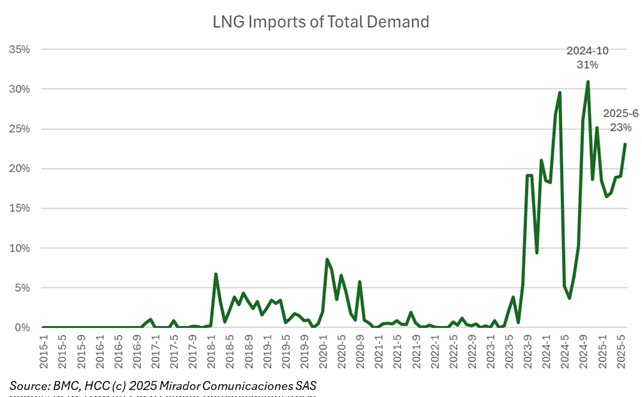
Colombia’s natural gas supply is facing a growing crisis, with a projected shortfall of 20% by 2026, according to the Gas Market Operator (GMO) under the Bolsa Mercantil de Colombia.
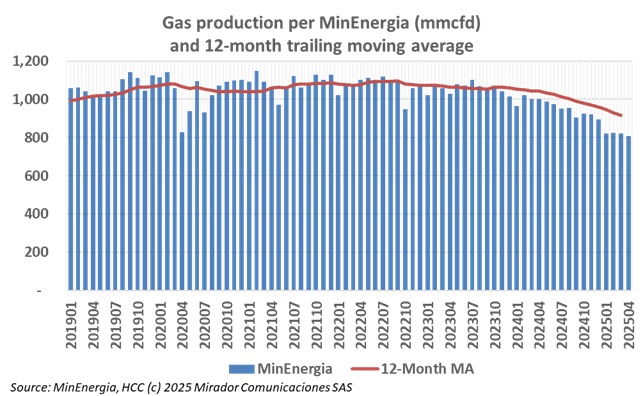
In April 2025, Colombia recorded its lowest commercial gas production since the COVID-19 pandemic, according to a recent report by the Colombian Chamber of Oil, Gas, and Energy Goods and Services (Campetrol).
Fedesarrollo warned of growing fiscal pressure amid rising import costs and shrinking domestic reserves.
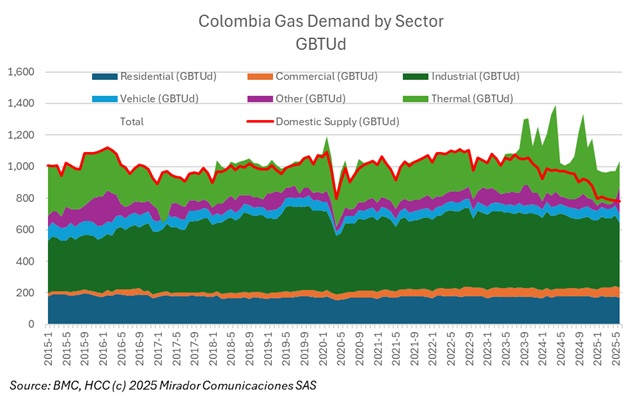
Gas supply continues to fall while gas demand rises. The obvious consequence is that imports rise and thus the average cost of gas. The Petro government has even stopped saying that everything is under control or threatening to fine E&Ps that “waste” gas. Where did it go?
In a landmark effort to boost Colombia’s energy transition, the National Hydrocarbons Agency (ANH) and the Industrial University of Santander (UIS) have unveiled the results of a comprehensive research initiative aimed at identifying real, science-backed opportunities for decarbonization and efficient use of national resources.
At the IV Forum on Sustainability Achievements, Jorge Henao, President of Transportadora de Gas Internacional (TGI), outlined two urgent regulatory measures needed to ensure energy security, expand natural gas coverage, and secure long-term supply for Colombia.
While Colombia grapples with uncertainty in the natural gas market, the government is offering reassurance on the availability of propane, a key energy source for millions of households.
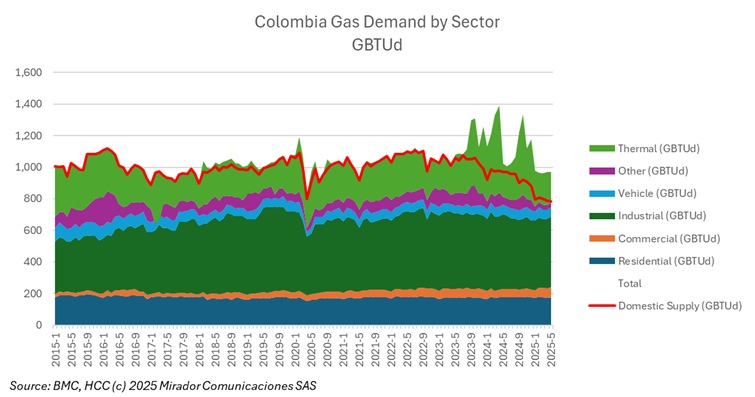
Colombia will need to keep importing natural gas in 2026 to meet domestic demand, according to figures from the country’s Gas Market Operator.
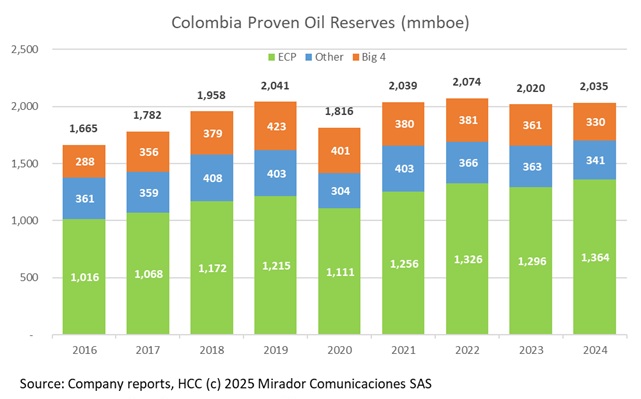
We cannot really blame Orlando Velandia and the ANH for spin-doctoring the recent oil and gas reserves report. His ultimate boss, Colombian President Gustavo Petro, doesn’t need any more bad press. But second derivatives, while interesting, do not tell the story.